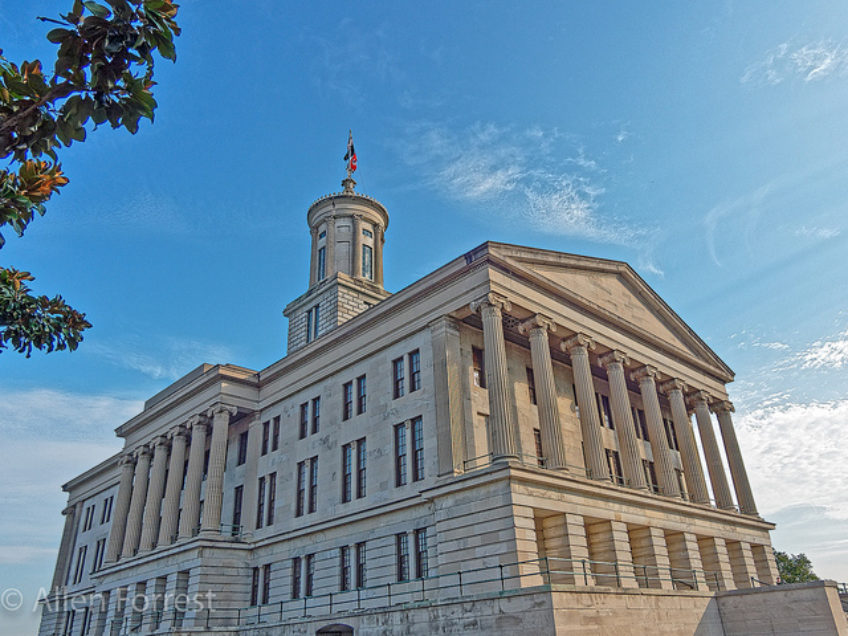Tennessee State of the State: Haslam Calls for Continued Fiscal Prudence in Volunteer State
In his eighth and final State of the State address, Tennessee Governor Bill Haslam counseled lawmakers to continue their efforts to lead the nation on job growth, economic opportunity, and education reform. Increasing government efficiency, cutting waste, further improving education, and growing the workforce are amongst his final priorities.
The governor celebrated that Tennessee has “become one of the best destinations to live, work, and raise a family,” with the lowest unemployment in state history, cumulative job growth over seven years of more than 17 percent representing nearly 400,000 private sector jobs, and $500 million in annual tax cuts. Better still, the Volunteer State has reduced spending by more than half a billion dollars annually, tripled the Rainy Day Fund, and maintained a AAA bond rating by all three major credit rating agencies.
Haslam was quick to point out that even in a healthy national economy, Tennessee’s growth cannot be taken for granted as “many states are facing deficits.” He credited the state’s capacity to “deliver critical services” regardless of economic conditions to fiscal responsibility. It’s no surprise Tennessee’s economic outlook has rocketed from 19th in 2014 to 5th in 2017 in the Rich States, Poor States ALEC-Laffer State Economic Competitiveness Index.
Governor Haslam further praised tort reform and workers’ compensation reform. He noted “every business is looking for predictability,” and “worker’s compensation insurance rates are 40 percent below what they used to be.” Tennessee was recently ranked 26th and 32nd nationally on these two issues, respectively. Improvements will soon translate into enhanced economic outlook.
Moving on to legislative priorities, Governor Haslam implored lawmakers not to “lose the momentum we have worked so hard to build.” He needled the skeptics, who couldn’t believe they were able to cut taxes and spending while “growing our economy and providing access to high quality education.”
In a preview of his final budget proposal, the governor asked lawmakers for more than $200 million in additional funds for K-12 and $100 million more for higher education. Much of these increases are to help provide raises to teachers. The governor noted Tennessee has the nation’s fastest-improving student test scores in math, science, and reading along with the highest high school graduation rates in state history. It’s important to keep in mind that these outcomes have been achieved with spending far more restrained than other states. His point underscores the extensive academic research at ALEC “higher per-pupil spending has not produced better academic performance.” Policy changes—such as expanding school choice and bettering teacher quality—can have far more impact. Fortunately, on several education policy matters, Tennessee is leading the way.
Like many of his counterparts across the country, Governor Haslam called for higher healthcare spending. He asked lawmakers to devote another $30 million to combat opioid addiction, improve treatment, and enhance law enforcement capabilities.
In contrast to prior years, the governor’s fiscal outline avoids controversial measures such as gas tax hikes and massive infrastructure spending. Instead, he recommended another $50 million for the Rainy Day Fund alongside the education spending hikes.
He applauded lawmakers that Tennessee is once again being recognized as State of the Year for Economic Development by “Business Facilities” magazine. He then requested another $128 million in economic development investments. Although politicians enjoy being able to point to specific businesses directly benefiting from this favoritism, economic opportunity is more efficiently and widely expanded through broad-based tax reform.
Governor Haslam noted that investments were made throughout his tenure alongside prioritized spending and continual trimming of the fat. Because of—not in spite of— reductions in the size of government, Tennessee has improved its core services in every metric. The governor reminded taxpayers that the annual budget growth of 2 percent has been below the rate of population growth plus inflation.
This final budget reflects this commitment to responsible spending by eliminating more than 335 outdated or inefficient government positions. Further, it continues the phase-out of the Hall Tax, the state’s tax on dividend and savings income. With an economic outlook once again in the top 5 and economic performance in the top 15, Tennesseans are reaping the benefits of a climate of economic opportunity thanks to responsible governance.

